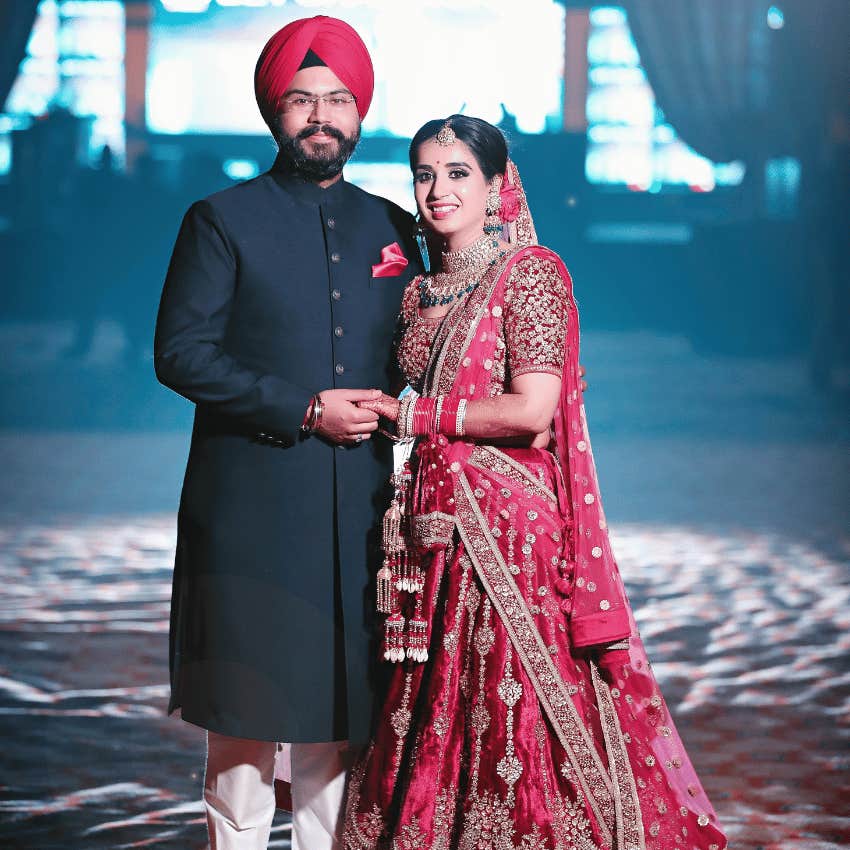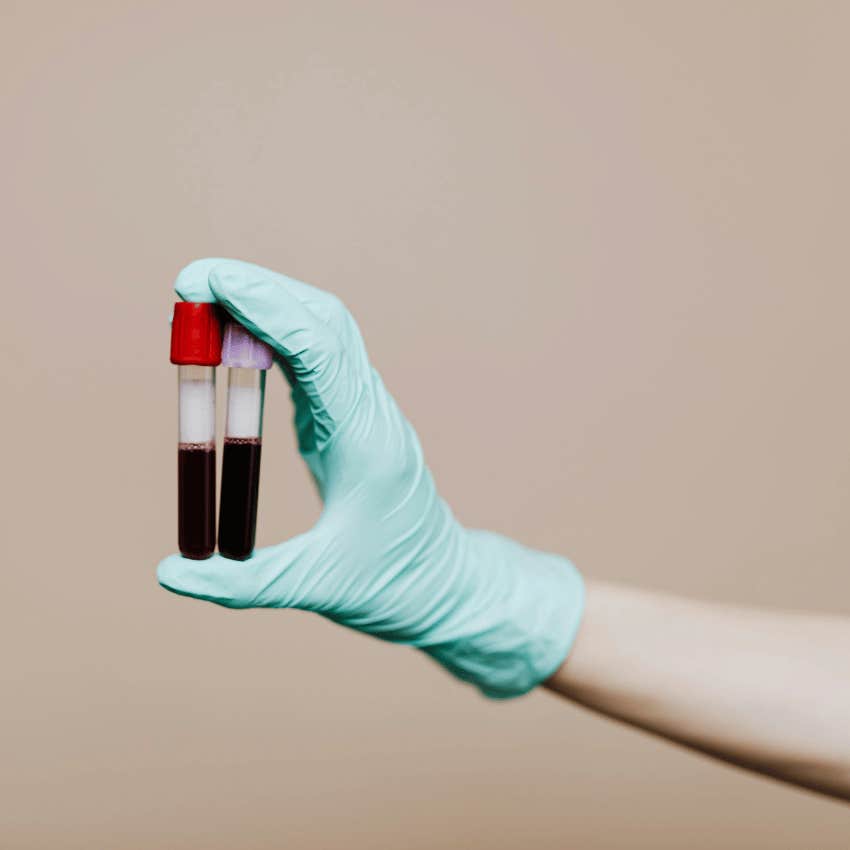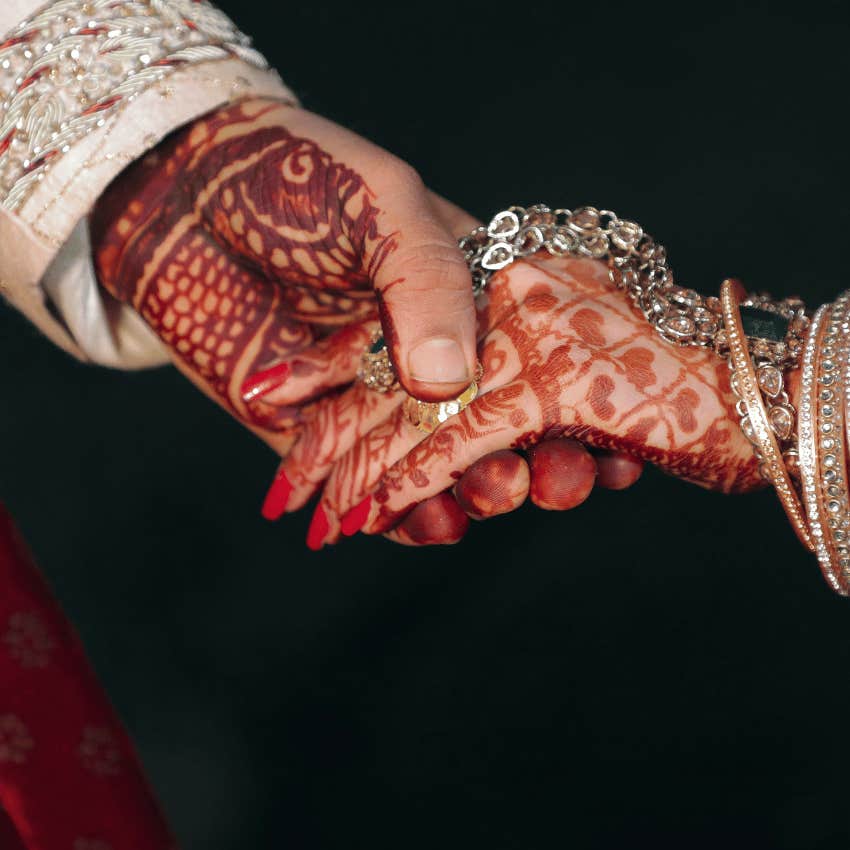India Has A Controversial Marriage Rule To Prevent Inbreeding — But There's Scientific Reason For It
The science behind India's ancestral rule of gotra.
 Getty Images | Canva
Getty Images | Canva Did you know if parents have different genes, their children tend to be taller and smarter? And when siblings or cousins marry, their children are more likely to have genetic disorders and birth defects.
The Whittakers are an example of this. They are considered the most inbred family in America, where the living members of the family share both sets of grandparents.
Their familial situation has gotten so severe over the generations that the family members communicate only in grunts and even bark at passers-by. What they don’t know is that their genetic problems originated from inbreeding within the family.
Most of the time, marriages between two blood relatives who are second cousins or closer happen intentionally because many cultures allow it. Such marriages are known as consanguineous marriages.
Consanguineous marriages can also be inspired by geography, religion, and ethnicity. But there are several cases where people mistakenly marry someone from their genetic tree and later, with DNA tests, find out that they were siblings or distant relatives.
But what most people may not know is that even if two people share an ancestor from 200 years ago, they could still carry the same gene.
It’s uncommon for such situations to happen, but recently, I heard Dr. Pal Manickam, a famous gastroenterologist, sharing a similar experience.
He pointed at his half-grown finger and said, ‘I have it, my father has it, my grandfather has it, and my grandfather’s father had it as well.’ So it’s generational. Dr. Manickam married a woman from the same community. After marriage, they had a lot of difficulty in conception and even had to go through seven abortions. Shockingly, when they looked at the unborn baby, there were no legs or arms.
Then, he figured out that he shared a gene with his wife. The gene was associated with his half-grown finger, and the same gene was present in his wife as well, but she didn’t have any visible defect at all.
He said that the main reason was that his dad married his sister’s daughter, and it has been established that genetic diseases are prevalent in marrying within a family. He also said that it’s healthier to marry someone from a different place, like from another state or even another country. This is because genetic testing is not something you think of before getting married. That’s where ancient sages came up with something ingenious.
 Cinestyle India | Pexels
Cinestyle India | Pexels
Gotra — The Genetic Code That Governed Our Ancestors’ Marriages
In earlier times, there was no need for genetic testing because our ancestors had a solid plan known as Gotra to prevent marriages between blood relatives. The word gotra refers to a family lineage or clan name. It indicates the ancestral lineage that a person belongs to.
असपिण्डा च या मातुरसगोत्रा च या पितुः ।
सा प्रशस्ता द्विजातीनां दारकर्मणि मैथुने ॥ — Manu-smriti 3.5
Translation: Marry a girl whose gotra is not in the same maternal lineage for six generations and does not belong to the same gotra as the father.
The gotra name is used as the surname of the family. Like, my gotra is Dahiya. Regardless of how many generations pass, people in my family will inherit the same family surname, ensuring they know their lineage name.
Even though the rule of Manu-smriti was perfect to ensure the diversity of genes, as time went by, it was changed by people. The new rule that has been known for generations has two conditions:
- First is not to marry anyone who has the same gotra as my mother, father, and grandmother.
- The second is to marry only within the community while making sure that husband and wife are not connected to the same family tree.
The problem with this new rule is that marrying in the same community limits genetic diversity. But people came up with a simple way to ensure diversity even when marrying within the community. The idea is to marry someone whose father’s, mother’s, and grandmother’s surnames do not match with your father's, mother's, and grandmother's.
How Genetic Diversity Was Ensured in My Marriage
Even today, it’s hard to marry someone from another community because most marriages in India are arranged. But because my father had a love marriage, my mother belonged to a different community.
Although they faced a lot of backlash for this, this simple decision has helped in further enhancing genetic diversity in our family. My family’s gotra are Dahiya (Father’s), Maan (Grandmother’s), and Dhameja (Mother’s). My wife’s family gotra are Kaliraman (Father’s), Dhankhar (Grandmother’s), and Shokeen (Mother’s).
No surname is the same, hence ensuring genetic diversity. All above belong to the Jat community except Dhameja (My mother’s surname), a surname used by the Sindhi community. If any of my wife’s family surnames had matched with any of ours, then I wouldn’t have been allowed to marry, no matter how long our relationship was or how much we loved each other.
But luckily my wife and I discussed our gotra at the beginning of our relationship to ensure that there wouldn’t be any problems in the future. I’m glad we were smart enough at 17.
 Karolina Kaboompics | Pexels
Karolina Kaboompics | Pexels
An Unconventional Solution to Determine Genetic Compatibility
Gotra is limited to India and probably its neighboring countries, but to make sure you have healthy offspring, genetic testing becomes a non-negotiable. An unconventional solution is that the smell of your partner should attract you. The attraction happens because of the dissimilarity between the genes and ensures higher chances of giving birth to healthy offspring.
A study from the University of New Mexico suggests that women like the smell of a man more if his genes are most dissimilar to their own. A study from UCLA found that men can unconsciously sense when a woman is ovulating based on her body odor, and this might affect how attractive they find her and also influence their behavior towards her romantically.
Researchers at New York University began a matchmaking service. It is based upon the concept of pheromones, the chemical signals animals use to attract mates, called Smell Dating. The first 100 customers got a T-shirt and wore it for three days without washing. They sent the shirts back to the founder’s “Sweat Shop” at NYU.
After that, they cut the T-shirts into pieces. Smell Dating then sent sets of 10 mixed pieces back to the customers to smell this week. If one person likes the smell of another person and the feeling is mutual, they’re a match.
Since I got married, my wife always tells me she loves the way I smell. So, if you like someone and you like how they smell, you might be lucky with genetics. But obviously, we cannot choose our partners solely based on smell. And that’s why genetic testing becomes important where the gotra system doesn’t exist or doesn’t get followed.
I also understand why genetic testing gets tricky for most people. When we’re young, we pick our partners without thinking about it. Even if we find out later that we have similar genes, it’s not like we’d want to break up just because of that.
But you should consider getting the genetic testing done before trying to have a child. If your genetics match and you are told that there could be complications in the child, I think adoption is a viable option. Another difficult but possible solution for this is to find partners from different geographical locations, in different communities, and across the boundaries of states.
 Liquid Artiste | Unsplash
Liquid Artiste | Unsplash
Debunking Myths about Genetic Diversity in Marriages
The gotra system works fine, but it’s not followed everywhere in India. There is not enough awareness about the complications that could occur because of negligence. Also, many people don’t realize the science behind the importance of gender diversity and make the mistake of marrying someone in their extended family.
It’s something that requires awareness if a nation wants to make sure that they have a healthy population. It’s also important to understand that even though several diseases today are lifestyle-based and can be treated with exercise and diet, the diseases born because of genetic similarity are much more dangerous and may not have any cure. The Whittaker family’s story exemplifies this harsh reality.
You could be a carrier of a genetic disorder and still lead a healthy life as these diseases might not be prevalent in the first generation. The same thing happened with Dr. Pal.
But if your partner is also carrying the same gene, your child may not lead a normal and healthy life. Because of the lack of knowledge about the benefits of genetic diversity, Indians placed some restrictions on the gotra system given in Manu-Smriti.
People often choose to marry within their communities because every community has a different culture. They worry about bringing someone from a different community into their family or sending their daughter to a home with different traditions than what they’ve grown up with. But it needs to be explained that it’s better for children’s health if people marry from different communities to bring more diversity.
Gaurav Dahiya is a writer and contributor to Medium, exploring topics such as relationships, culture, health, and personal growth. His work has been featured in various big Medium publications such as Human Parts, Publishous, and IFAIH. He also talks about living in a more connected way with nature and is also a natural living coach.

